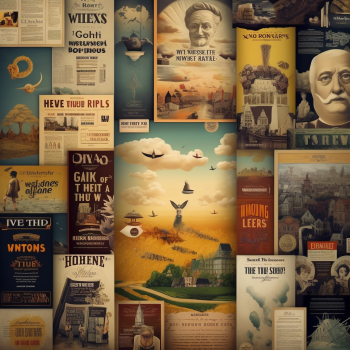Empire_Of_The_Seas《海上帝国》

简述
封面

影片信息
官方网站
http://www.bbc.co.uk/programmes/b00q3l9k
影片原始规格:
- 中文片名 :海上帝国
- 中文系列名:
- 英文片名 :Empire Of The Seas
- 英文系列名:
- 电视台 :BBC
- 地区 :英国
- 语言 :英语
- 时长 :约 59 分钟 /ep
- 版本 :TV
- 首播时间 :2009
影片内容介绍
劇情簡介
Historian Dan Snow charts the defining role the Royal Navy played in Britain’s struggle for modernity - a grand tale of the twists and turns which thrust the people of the British Isles into an indelible relationship with the sea and ships.
分集介绍
【橡木之心】Heart of Oak

Heart of Oak opens with a dramatic retelling of 16th and 17th-century history. Victory over the Armada proved a turning point in the nation’s story as tiny, impoverished England was transformed into a seafaring nation, one whose future wealth and power lay on the oceans. The ruthless exploits of Elizabethan seafaring heroes like Francis Drake created a potent new sense of national identity that combined patriotism and Protestantism with private profiteering.
At sea and on land, Snow shows how the Navy became an indispensable tool of state, weaving the stories of characters like Drake, God’s Republican warrior at sea Robert Blake, and Samuel Pepys, administrator par excellence, who laid the foundations for Britain’s modern civil service.
With access to the modern Navy and reconstructed ships of the time, Snow recounts the Navy’s metamorphosis from a rabble of West Country freebooters to possibly the most complex industrial enterprise on earth.
【黄金海洋】The Golden Ocean

In The Golden Ocean, Snow charts the period from 1690 to 1759 and reveals how England - soon to be Britain - and her Navy rose from the depths of military and economic disaster to achieve global supremacy.
In 1690, France ruled the waves and the Royal Navy was in tatters. King William III had taken England into a disastrous war against the most powerful country in Europe. If England was to survive, it needed a new Navy, one capable of carrying the fight to its enemies anywhere in the world.
To achieve this would require a national effort unlike anything that had been seen before. King William III’s determination to achieve mastery of the seas unleashed a chain reaction of revolutions in finance, industry and agriculture which reshaped the landscape and created the country’s first great credit boom. Fifty years before the Industrial Revolution, the Royal Navy became the engine of global change, propelling Britain into the modern world.
It had the desired effect at sea. By 1759, French forces around the world were capitulating to Britain’s superior Navy. For the first time in her history, Britannia really did rule the waves.
【巅峰对决】High Tide

In the third programme in this epic four-part series on how the Navy has shaped modern Britain, Dan Snow sheds light on the evolution of Nelson’s Navy in the late 18th century. It was the most powerful maritime fighting force in the world, with highly trained crews and ambitious officers. He explores the national enterprise which supported it, and explains how the empire it helped create put Britain on the path to war with France.
Through the stories of naval heroes like Captain Cook, naval administrators like Charles Middleton and of course Admiral Nelson, Snow explores the elite training, the growing naval meritocracy and the years of tough experience which created a ruthless and professional ‘Band of Brothers’. He looks at the impact of innovations such as the copper bottoming of the navy’s ships and the introduction of a new tax - income tax - to pay for the fleet.
Pushing back the boundaries of the known world, the navy’s highly trained crews and ambitious officers laid claim to a burgeoning empire, but at a huge price. By 1800, Britain had been dragged into the greatest sequence of wars the nation had ever seen.
【海上巨变】Sea Change

In the last of this four-part series, historian Dan Snow explores the ups and downs of a climactic century in naval and British history.
Rapacious and ruthless, the 19th-century Navy used ‘gunboat diplomacy’ to push British interests further afield than ever before. It was control of the sea rather than her land empire that was the key to Britain’s growing wealth.
Technological advances saw Britain and France engage in an arms race over battleships. While Britain’s navy appeared to be winning, the meritocracy fostered in Nelson’s time was slowly being eroded by an entrenched hierarchy which smothered any spark of initiative among its sailors.
When Germany emerged as a new threat, modernising admiral Jackie Fisher was called to reform the Navy. Fisher believed in peace through deterrence and had plans for a huge new battleship - the Dreadnought.
When war finally came, the British and German fleets clashed off Jutland in 1916. But the outcome was not the knock-out blow the British public wanted. Britain emerged from World War I victorious but broke, and no longer able to maintain by far the world’s largest fleet. In time, other nations eclipsed her. It was the end of centuries of naval supremacy.
截图

参考信息
相关的纪录片
暂无
相关领域
人物 Dan Snow
| 内容 应用科学类 | 机械工程 | 船舶 |
|---|---|---|
| 社会科学类 | 军事 | 军舰 |
| — | — | — |
| 史地类 | 历史 | 十六世纪 |
| — | — | — |
网路消息
暂无
Category:片名 Category:BBC Category:2009 Category:Dan Snow Category:4. 应用科学类 Category:4.3 机械工程 Category:4.33 船舶 Category:5. 社会科学类 Category:5.6 军事 Category:5.622 军舰 Category:6. 史地类 Category:6.1 历史 Category:6.113 十六世纪 Category:6.114 十七世纪 Category:6.115 十八世纪 Category:6.116 十九世纪 Category:6.117 二十世纪 Category:6.2 地理 Category:6.23 欧洲 Category:6.231 西欧 Category:6.2311 英国 Category:缺翻译